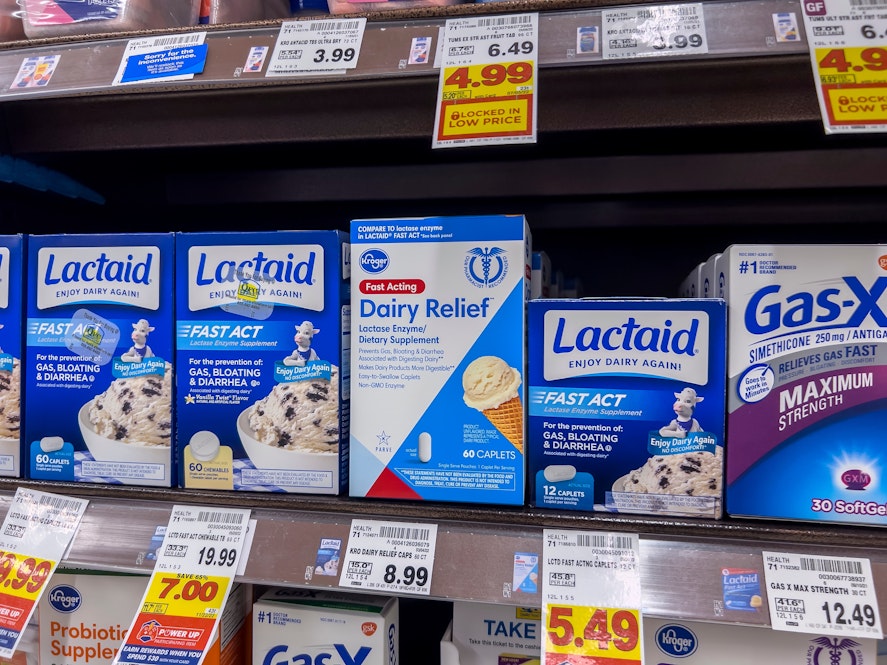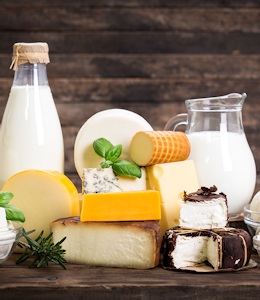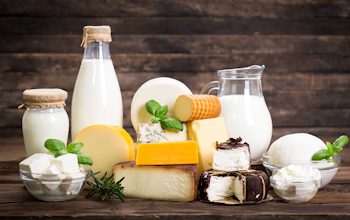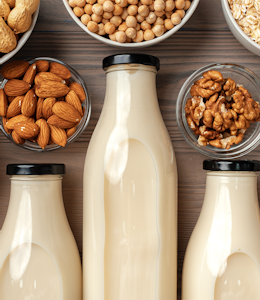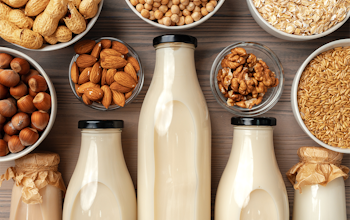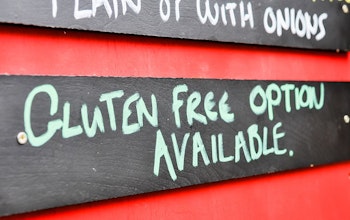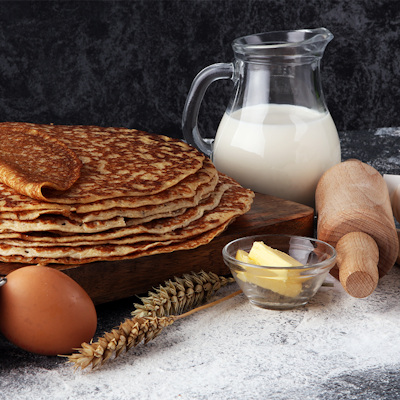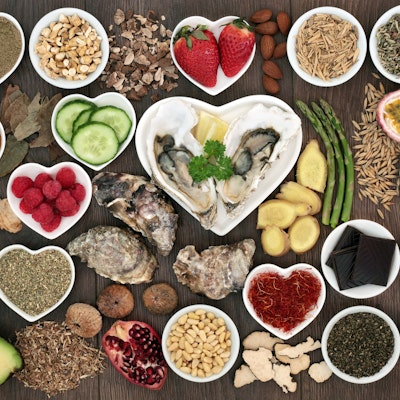Lactose intolerance - everything you need to know
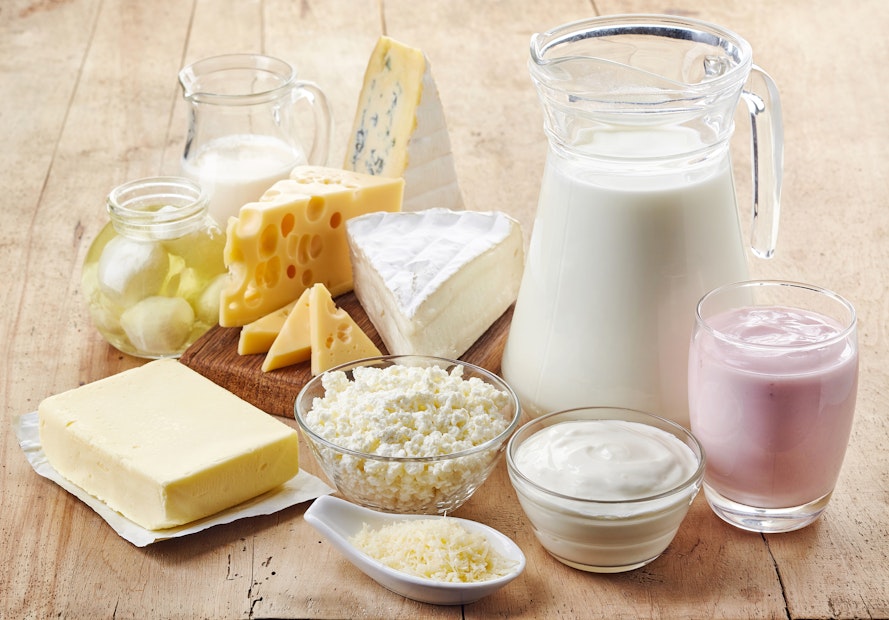
Lactose intolerance, we’ve all heard the words thrown around but what do they actually mean? And with more people than ever opting for dairy-free, vegan and gluten-free diets and allergies on the rise, there can be a lot of confusion around who needs to avoid what foods and why.
Many people might confuse lactose intolerance with a milk intolerance, or even a milk allergy, so we’ve put together this handy guide to make sure you know the difference between them - as well as everything else you might need to know about lactose intolerance...
What is lactose intolerance?
Lactose intolerance is the negative reaction of the body (specifically the digestive system) when it is unable to digest lactose, a sugar found in dairy products.
People with lactose intolerance do not produce enough lactase, which breaks down lactose so it can be digested. Because the lactose has not been digested the negative reaction occurs.
This negative reaction usually comes in the form of symptoms such as a gas and bloating. Some people with lactose intolerance can be triggered by even a small amount of lactose, whereas others can consume an amount of food containing lactose without experiencing much discomfort.
What is lactose?
Lactose is a type of sugar found in some foods and drinks - particularly dairy products such as milk.
The name actually comes from the latin word for milk, ‘lac’, and the suffix ‘ose’. This suffix is used to name sugars. Lactose is composed of galactose and glucose subunits.
What are the symptoms of lactose intolerance?
There are several different symptoms that a person with lactose intolerance might experience if they consume food or drink containing lactose. These include:
- Passing wind
- Bloated stomach
- Nausesa
- Diarrhoea
- Stomach pain and cramps
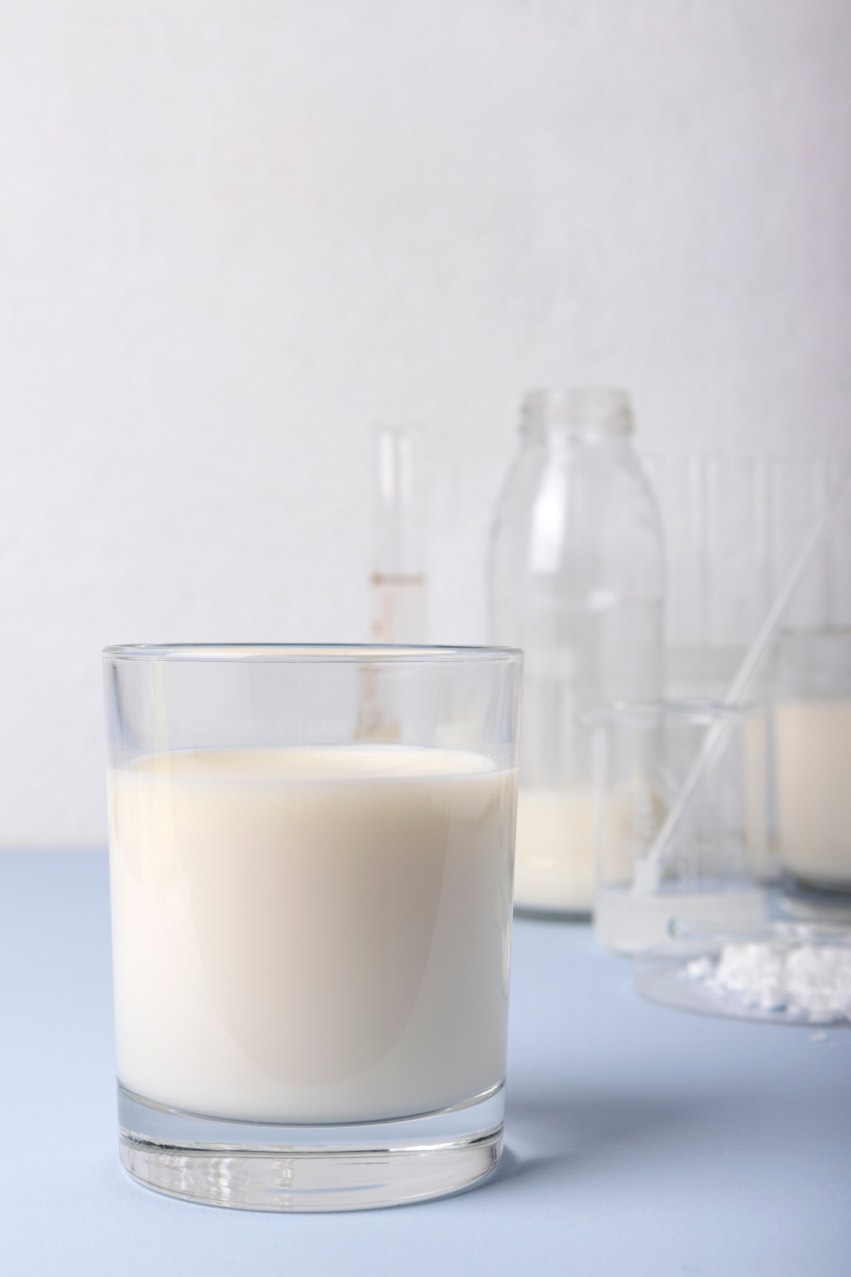
These symptoms can develop anywhere between 20 minutes and 2 hours of consuming a food or drink containing lactose and generally, the more lactose that has been consumed the more severe the symptoms will be (although sufferers may have different levels of tolerance for lactose).
The symptoms of a lactose intolerance might easily be confused with several other conditions - such as a milk allergy or milk intolerance (which are triggered not by the milk sugar lactose but by the proteins in either the milk curd or whey), or Irritable Bowel Syndrome (a long-term digestive disorder commonly known as IBS).
These different conditions may require different treatment or precautions than lactose intolerance, so it is best to check with a doctor to get a diagnosis rather than simply cutting out dairy products. A milk allergy may require the precaution of an AAI (Adrenaline Auto-Injector), for instance.
Can lactose intolerance have small amounts of lactose?
Some people with lactose intolerance can consume small amounts of foods such as milk or cheese (which contains lactose) without a reaction being triggered, whereas others will react to even the smallest amount.
What causes lactose intolerance?
There are several different causes of lactose intolerance - the inability of the body to digest the sugar lactose.
A very common cause is an inherited genetic fault that means the condition is passed down through families, and an increasing cause is a lack of dairy products in a person’s diet - so the body reduces the amount of lactase (the enzyme which breaks down lactose and allows it to be digested) being produced.
In some people lactose intolerance is triggered by the existence of another medical condition (Crohn’s disease for instance) and sometimes it appears to come out of nowhere at all.
Lactose intolerance can develop at any age, and often does so when babies make the transition from a milk-based diet to a more well-rounded one. It is unusual, but not unheard of for babies to be born lactose intolerant.
Is lactose intolerance the same as a dairy allergy?
No, lactose intolerance is not the same as a Milk allergy (sometimes known as a dairy allergy).
Firstly, those with a Milk allergy are not triggered by lactose - which is a type of sugar found in some foods and drinks but especially dairy products, but by proteins which can be found in either the milk’s curds or whey.
Secondly, allergies affect the immune system, which intolerances do not. Intolerances usually affect the digestive system. Though lactose intolerance and a Milk allergy may share some symptoms, a lactose intolerance will not result in anaphylaxis whilst an allergic reaction might. Anaphylaxis is potentially fatal, and this is why it is important to know the difference between the 2 conditions.
Is lactose intolerance the same as a dairy intolerance?
A milk or dairy intolerance and lactose intolerance share symptoms but they are not necessarily the same.
People with lactose intolerance are unable to digest lactose after consuming it because they do not produce enough of the enzyme lactase - which is what breaks down lactose and allows it to be digested.
Whilst lactose intolerance is technically a type of dairy intolerance, it is not the only type. Some people may be intolerant to proteins found in milk, and be unable to digest them properly. That is why lactose-free milk and cheese is not necessarily suitable for people with a dairy intolerance, as it is only the lactose sugar that has been removed and not the proteins.
How do you treat lactose intolerance?
There are several treatments you can try for lactose intolerance, but there is no cure and the best thing to do to prevent symptoms is avoid consuming food or drinks that contain lactose.
There are many dairy products such as milk and cheese that have lactose-free variations on the market now, and there are also lactase substitutes (in the form of drops, capsules or tablets) which can be added to food or drinks to improve the digestion of lactose.
Those following a dairy-free diet may wish to take supplements (such as calcium or B12) to ensure they are not missing out on the nutrients found in milk, cheese, butter and yoghurt.
What triggers lactose intolerance?
The negative effect on the digestive system associated with lactose intolerance is triggered by the consumption of food or drink containing lactose by someone whose body does not produce enough of the enzyme lactase to digest lactose.
Occasionally lactose intolerance is triggered by the existence of another medical condition in the body such as Crohn’s disease, Coeliac disease or diabetic enteropathy. Sometimes if people do not eat dairy foods for a long time their body may reduce the amount of lactase being produced and so when they do eat foods containing lactose again they are unable to digest them.
What are the lactose intolerance foods to avoid?

People with lactose intolerance should avoid dairy foods. This means milk (from cows and other mammals) and all of its derivatives, such as the following:
- Milkshake
- Flavoured milk
- Cheese (some cheese such as cream cheese has more lactose than others)
- Butter
- Buttermilk
- Cream
- Yoghurt
- Frozen yoghurt
- Ice cream
- Chocolate
And all foods that include these foods as ingredients.
Can lactose intolerance eat eggs?
Yes, people with lactose intolerance can eat Eggs unless they have an Egg allergy or intolerance. Eggs do not contain lactose, or the proteins found in Milk, and are not technically a dairy product.
Can you get lactose intolerance tablets?
You can buy tablets (or drops or capsules) that contain lactase, the enzyme that allows the body to digest lactose - people with lactose intolerance do not produce enough lactase. These tablets can be added to food or drinks containing lactose, and allow some people with a lactose intolerance to consume these foods without suffering a negative reaction.
